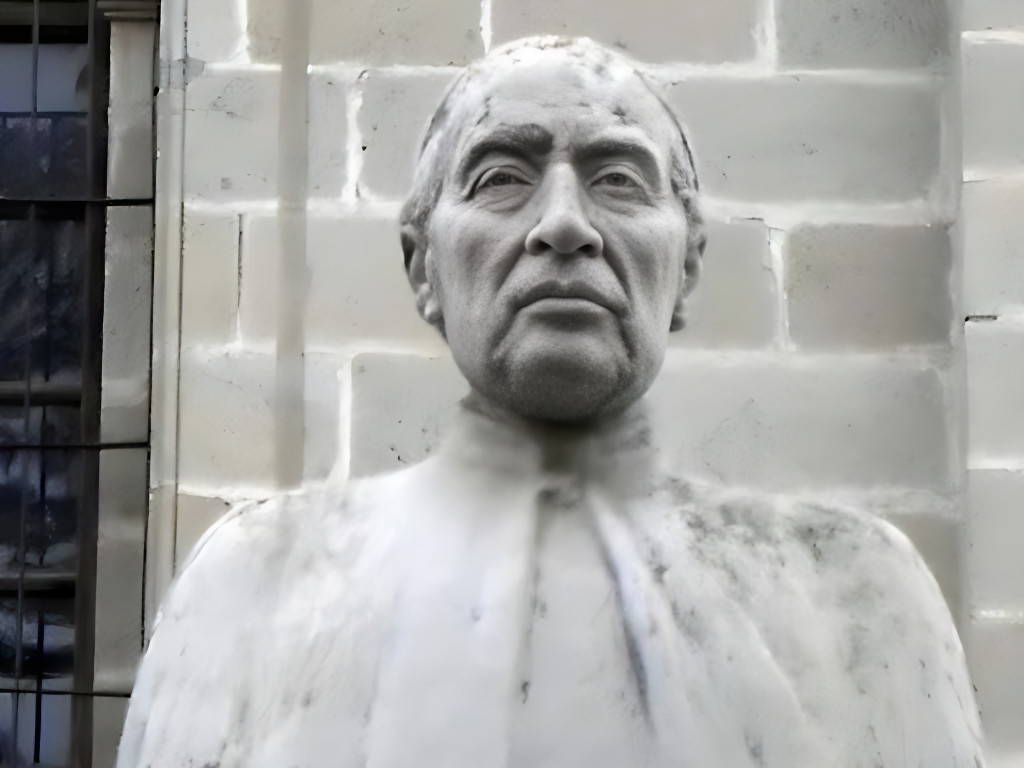Dr. Juan Félix Proaño Castillo (Riobamba, July 20, 1850 – Quito, July 30, 1938) was an Ecuadorian priest, theologian, writer, educator, and political figure, whose extensive contributions spanned the late 19th and early 20th centuries, significantly shaping Ecuador’s cultural and religious landscape. Celebrated for founding “El Templo del Sagrado Corazón de Jesús” in 1892, a newspaper that integrated religious teachings with cultural and literary discourse, Proaño stood firm against the liberal reforms of his era. This conviction led to his exile, during which he persisted in his scholarly and pastoral work. His historical drama “Quisquís” is particularly notable for its portrayal of Incaic civilization, underscoring his commitment to chronicling and preserving Ecuador’s rich historical and cultural heritage.
Timeline
- July 20, 1850: Born in Riobamba, Ecuador, to Manuel Proaño de los Reyes y Araujo and Carmen Castillo Zambrano.Early Childhood: Begins informal education under the guidance of his mother, Carmen Castillo Zambrano.
- 1860: Enters the Jesuit College San Felipe Neri in Riobamba.
- 1866: Death of his father, Manuel Proaño de los Reyes y Araujo.
- July 25, 1869: Graduates with a Bachelor in Philosophy from the College San Felipe Neri.
- 1872: Assumes role as Prefect and Professor of Literature and Philosophy at the Seminary of Riobamba.
- February 18, 1875: Ordained as a priest and earns a Doctorate in Theology.
- 1877 – 1881: Serves as Vicerrector and Rector of the Seminary.
- 1884 – 1886: Elected as a Deputy for his province, engaging in political activities and expressing his conservative stance.
- 1892: Founds “El Templo del Sagrado Corazón de Jesús” newspaper in Riobamba.
- 1894: Becomes a Member of the Cantonal Council of Riobamba.
- 1895: Actively opposes the Liberal Revolution led by Eloy Alfaro. Begins writing against liberal policies.
- 1896: Plays a significant role in the conservative resistance against the liberal government.
- 1897: Exiled to Lima, Peru, due to his political and religious activities against the liberal regime.
- Late 1890s: Continues his exile in Santiago, Chile, dedicating himself to teaching, writing, and pastoral care.
- Early 1900s: Returns to Ecuador and becomes involved in the administration of the diocese of Bolívar.
- March 15, 1906 – January 24, 1908: Directs the diocese as Vicario General and Vicario Capitular.
- 1915: “El Templo del Sagrado Corazón de Jesús” is renamed “Mensajero del Sagrado Corazón”.
- 1918: Elected as a Corresponding Member of the National Academy of History.1919: Drama “Quisquís” receives honorable mention in the International Dramatic Contest in Colombia.
- July 30, 1938: Passes away in Riobamba at the age of 88. His death marks the end of a significant era in Ecuadorian literature, politics, and religion.
Literary Works
- “Quisquís”: A drama highlighting Incaic civilization, which received honorable mention in the International Dramatic Contest in Colombia, 1919.
- “Condorazo”: A drama in prose about prehistoric Ecuador, published to celebrate his sacerdotal golden jubilee in 1925.
- “Romance Histórico”: Reprinted in 1926, originally a poetic narrative concerning the conservative campaign against radical liberalism in 1896.
Historical and Educational Contributions
- Memoria sobre la construcción del Templo de San Alfonso de Ligorio: Published in the year following his exile, detailing the construction of a significant church, date unspecified.
- Biography of Dr. Leopoldo Freire: Published in 1911.
- Memoria de la Diócesis de Riobamba en 50 años de existencia: Published in 1915, under the pseudonym “Léntulo”.

